"Magic Lung" Empowers, Creating a Miracle of Life
"Magic Lung" Empowers, Creating a Miracle of Life – Wuwei Academy of Medical Sciences' Department of Critical Care Medicine Successfully Performs ECMO Technology
Recently, under the leadership of Director Wang Yi, the team from our hospital's Department of Critical Care Medicine successfully saved a patient with severe ARDS (acute respiratory distress syndrome) and MODS (multiple organ dysfunction syndrome) after providing extracorporeal life support with ECMO (extracorporeal membrane oxygenation) for 9 days. The successful implementation of this technology marks a new milestone in our hospital's critical care capabilities. Currently, the patient has been transferred to a general ward.
At 2:30 a.m. on March 19, a 55-year-old male patient, Mr. Dou, was admitted to the Department of Critical Care Medicine via emergency due to respiratory failure. Upon admission, his vital signs were: heart rate 145 beats per minute, respiratory rate 39 breaths per minute, blood pressure 72/39 mmHg, and oxygen saturation 56%. He presented with confused consciousness, cyanotic lips, and rapid breathing, indicating a critical condition. The on-duty doctor urgently performed endotracheal intubation and initiated ventilator-assisted respiration. After 6 hours of optimal conventional treatment and prone position ventilation, the patient remained in severe hypoxemia, with an oxygenation index of only 65 mmHg. Additionally, he developed hypoxic damage to organs such as the liver, kidneys, and heart.
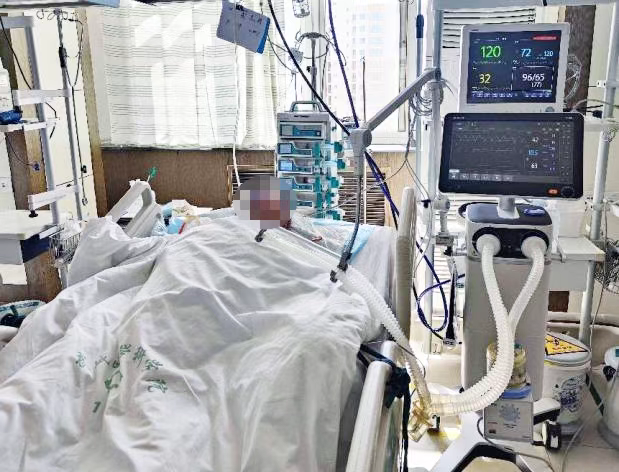
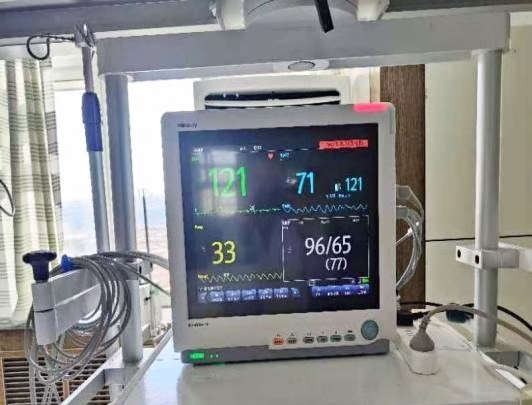
Life takes precedence—no time to delay. Faced with the patient’s complex condition, Director Wang Yi acted decisively, ordering the immediate initiation of ECMO for extracorporeal life support. This move aimed to minimize the risk of the patient’s condition worsening and buy time for further resuscitation.
Management after ECMO initiation is highly complex: the patient could develop life-threatening complications at any moment—including bleeding, thrombosis, distal limb ischemia, and systemic bloodstream infection. No one could guarantee that the treatment would achieve the desired outcome.
Undeterred by immense pressure and challenges, the Department of Critical Care Medicine promptly established an ECMO rescue team. They implemented 24/7 bedside intensive management, remained ready for emergency interventions at all times, and conducted a remote consultation with Director Liu Dong from the Department of Critical Care Medicine at The 940th Hospital of the Joint Logistics Support Force for guidance.
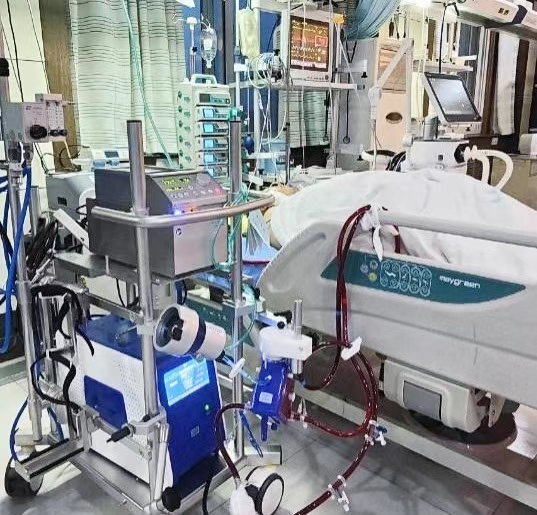
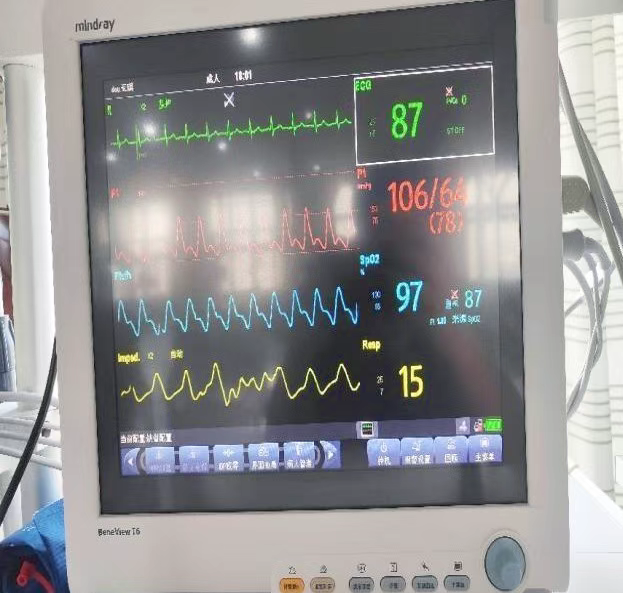
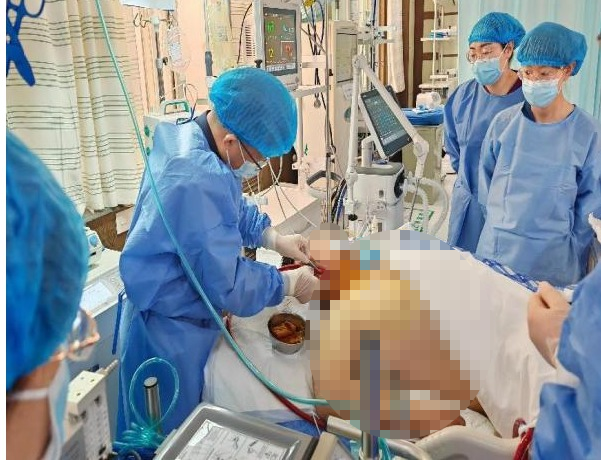
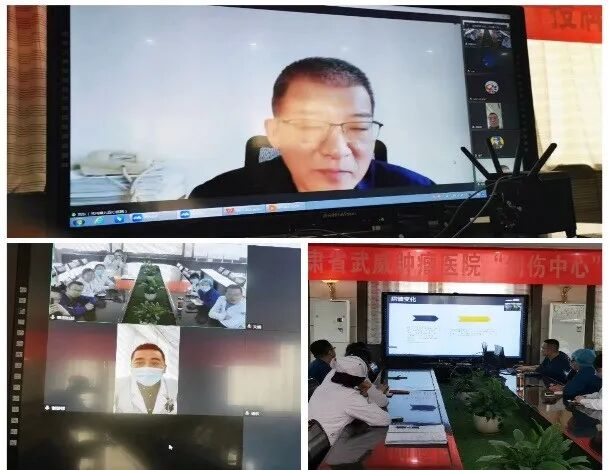
March 28, 2023, marked a memorable milestone. After 9 days of extracorporeal life support with ECMO, the patient’s vital signs gradually stabilized—oxygen saturation rebounded, and organ function began to recover... ECMO had fulfilled its mission, and weaning from the device was achieved smoothly.
Two days later, a follow-up chest CT scan showed marked improvement in pulmonary infection and exudation. With meticulous, dedicated care from the rescue team, the patient underwent targeted therapies including infection control, nutritional support, and respiratory function rehabilitation. On April 1—the 15th day of his treatment journey—he successfully discontinued ECMO and was extubated.
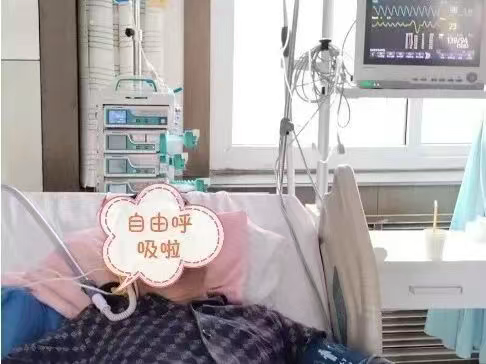
Respecting science, revering life. This rescue effort marks a memorable chapter in the history of our hospital’s Department of Critical Care Medicine—a testament to multi-party collaboration, united resolve, a turnaround against all odds, and the creation of a miracle.
ECMO (Extracorporeal Membrane Oxygenation), commonly known as "membrane lung" or "artificial heart-lung machine," is a critical ICU device that uses a membrane lung and blood pump to assist patients with pulmonary oxygenation and replace the heart’s role in pumping blood to the pulmonary vasculature and systemic circulation. Its primary function is to provide continuous extracorporeal respiratory and circulatory support for patients with severe cardiopulmonary failure, aiming to sustain life. Thus, it serves as the last line of defense for such patients and represents the cutting-edge life-saving technology today, earning it the nickname "magic lung" among many medical staff. However, due to its high cost, the risk of multiple complications with prolonged use, and the high demand for comprehensive team capabilities, there are currently few successful rescue cases using this device in municipal hospitals across our province.
Department Introduction
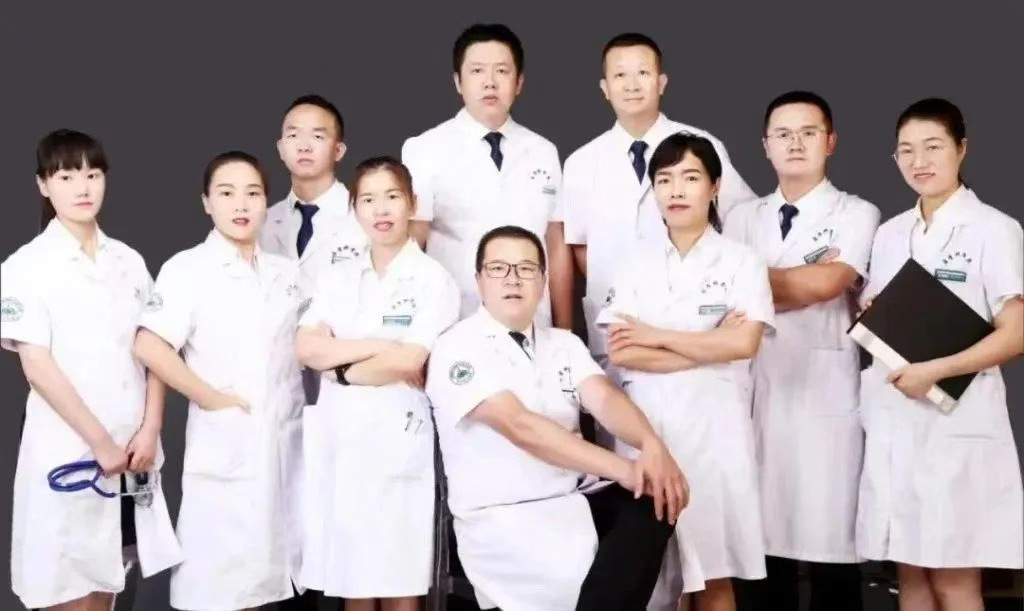
Our hospital’s Department of Critical Care Medicine is a Key Clinical Specialty of Wuwei City. Over the years, led by Director Wang Yi, the team has repeatedly delivered extraordinary achievements. Equipped with advanced treatment philosophies, masterful techniques, and state-of-the-art equipment, our scope of care and success rates have expanded year on year—we now manage life-threatening critical illnesses including severe infections, sepsis, multiple organ failure (MOF), surgical complications, severe trauma, various types of shock, acute chemical poisoning, and massive hemorrhage caused by diverse underlying conditions.
Looking up to the stars, we revere life. We believe that with this exceptional team—scientific, self-disciplined, thorough, and rigorous—our future in critical care will continue to witness one life-saving miracle after another.
Preliminary Review: Zhang Jie
Final Review: Ma Shuqian
